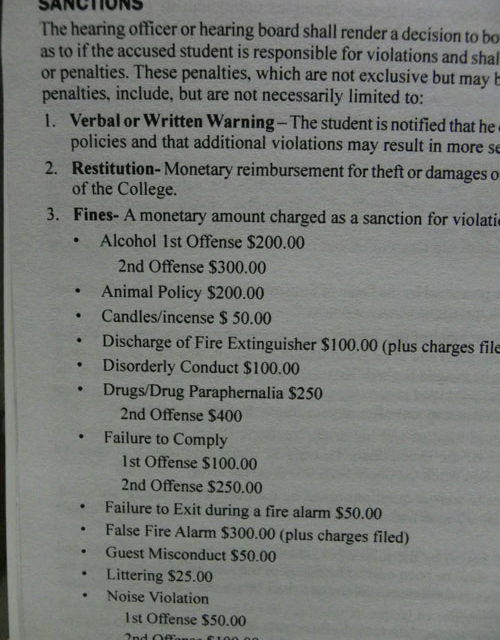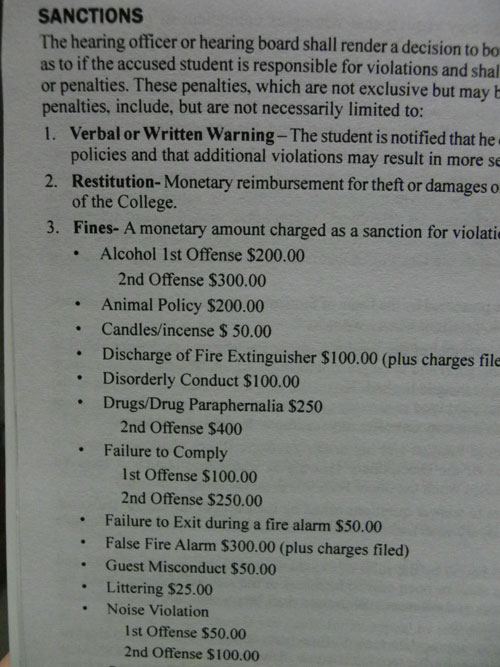By Antonio Gary (Contributor)
Wesley College has now changed a zero tolerance policy regarding marijuana possession into a three-step violation process.
The college had previously dealt with its share of marijuana issues with swift punishment, suspended the student immediately.
Last year, a committee of three students, three faculty members and three administrators rewrote policies in the handbook.
“We always tried to go hand-in-hand with the state as far as marijuana law and policy,†said Student Government Association vice president Bryan Zarou. “We realized the law was outdated and decided to change it after some back and forth disputes.â€
The change included a three-step process. For the first violation, the student will be fined $250; will go through a mandatory substance abuse assessment to determine if a person’s drug use is a problem that requires rehabilitation; and random drug testing, whose failure will result in suspension.
A range of other disciplinary actions includes a possible work assignment, participation in a drug education program, and restriction to residence hall access.
The second violation will result in a $400 fine, a suspension from housing and parental notification. If a student is caught again, the student will be expelled.
Some students feel the new marijuana rules remain too harsh and that it should be the equivalent of alcohol. Alcohol violations are a three-step process as well. The first violation consists of a $200 fine, attending an alcohol education program, writing a personal reflection statement and disciplinary probation for a semester or one year. The second is a $300 fine, community service, parental notification, alcohol assessment or substance abuse counseling and probation extended for one year. The third violation results in suspension from the school for one year, parental notification and completion of a substance abuse program.
“Marijuana isn’t a problem on campus,†said freshman Daniel Miller. “The fine should be the same as alcohol.â€
The college’s security report doesn’t provide the information regarding recent drug arrests, but shows a decrease of drug violations on campus and residential facilities from 2007 to 2009.






